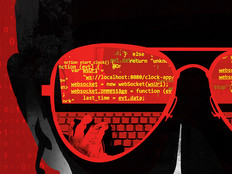Don’t Ask Employees to Live Without Their Mobile Devices
We all love our gadgets. No one can deny that. Mobile devices have become such a part of our everyday lives that it's hard to get through dinner, not to mention a workday, without turning to them for information, communication and entertainment. Even my 2-year-old daughter recognizes the appeal of the "'Angry Birds' machine" that my family can't seem to resist for more than a moment.
I think that's the biggest reason why everywhere I turn, technologists are talking BYOD. Several IT decision-makers I've spoken to have raised the important issues of security and bandwidth requirements to support BYOD, and for good reason. But the "bring your own device" discussion is unavoidable, with agencies struggling to find money for the technology they need to be more productive and efficient.
State CIOs have certainly taken notice of this trend. Already, 58 percent characterize mobile devices and apps as essential or a high priority within their strategic plans, according to the results of NASCIO's 2011 State CIO Survey.
Napa County, Calif., for example, recently launched a BYOD program, in part to give employees the flexibility to tap iOS and Droid apps. "People are discovering how useful these apps are in their personal lives, so it's only natural that they would want to apply them to their work lives as well," says CIO Jon Gjestvang.
Organizations launching BYOD initiatives have drafted policies that spell out the rules and regulations. In the case of Catawba County, N.C., CIO Terry Bledsoe says those requirements include using a password to protect devices and immediately informing IT if a device is lost or stolen. Workers are reimbursed for the cost of wireless service according to a stipend system based on their usage requirements. For more insight into how local governments are balancing the managerial and security aspects of a mobile world, turn to "Counties Forge BYOD Policies."
Wireless World
And what good are mobile devices without robust applications? Many states, counties and cities are developing public-facing apps for use by citizens. To learn about the mobile 311 system in the city of Riverside, Calif., and other app efforts, turn to "How Local Governments are Taking Advantage of Mobile Apps."







